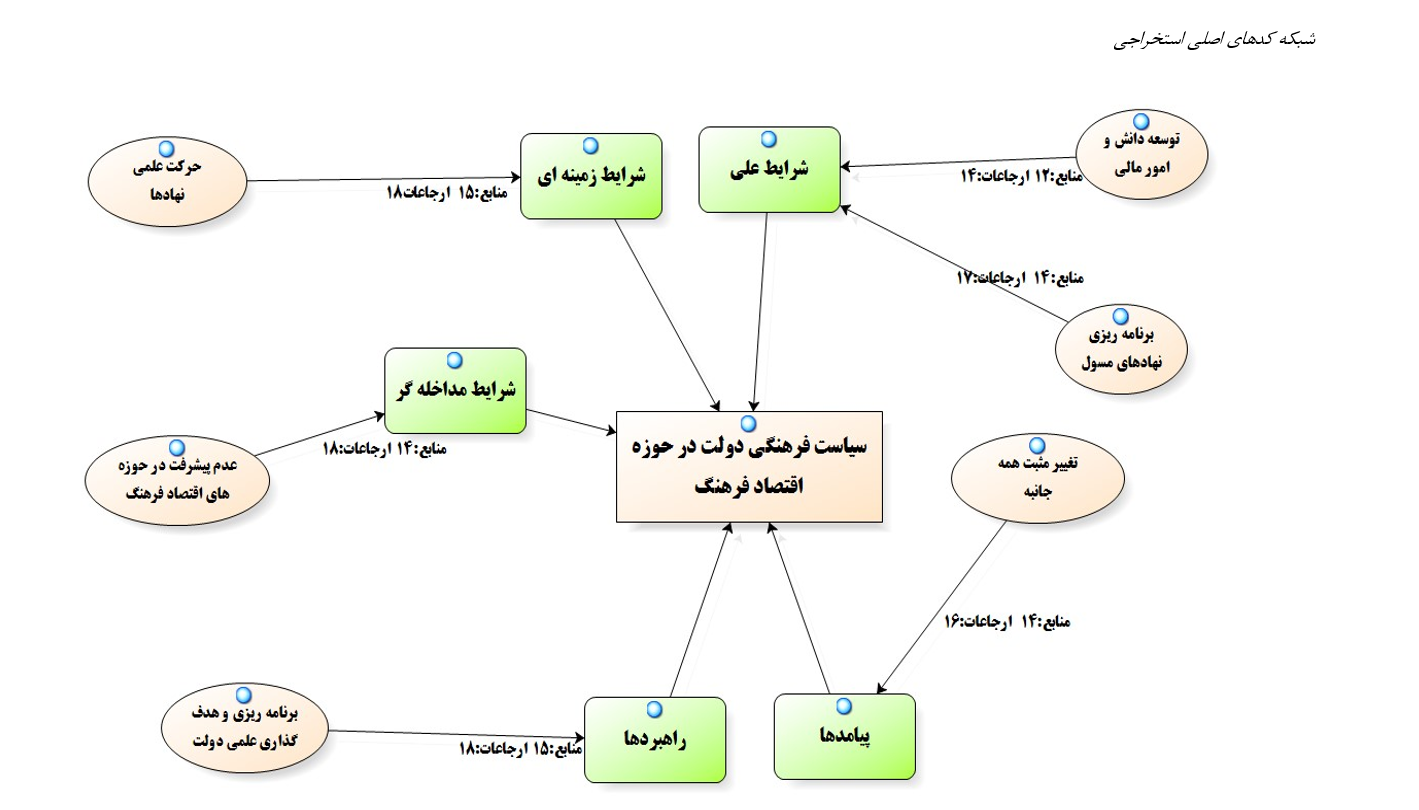تدوین الگوی سیاست فرهنگی دولت در حوزه اقتصاد فرهنگ: نظریه زمینهای
کلمات کلیدی:
سیاست فرهنگی, اقتصاد فرهنگ, دولت, تحقیق کیفیچکیده
هدف پژوهش حاضر تدوین الگوی سیاست فرهنگی دولت در حوزه اقتصاد فرهنگ بود. روش تحقیق به صورت کیفی و از نوع روش نظریه زمینهای رهیافت سیستماتیک استراوس و کوربین بود. جامعۀ آماری تحقیق شامل جامعه خبرگان، متخصصان سیاستگذاری و برخی اساتید سیاستگذاری و برنامهریزی در ایران بود. روش نمونهگیری به صورت هدفمند بود. نمونه آماری با توجه به اشباع نظری محقق مشخص شد و جهت اطمینان از اشباع نظری سه نمونه دیگر بعد از نمونه 12 انجام شد (3+12). ابزار گردآوری دادهها مصاحبه نیمهساختاریافته و جهت تجزیهوتحلیل دادهها از تکنیک کدگذاری استفاده شد. برای باورپذیری خود محقق یکی از مصاحبهها را بعد از یک ماه دوباره کد گذاری نمود، نتایج با ضریب اسکات مقایسه شد. ضریب اسکات 80 درصد در مصاحبه به دست آمد و برای سنجش روایی این پژوهش، گزارش پایانی فرایند تحلیل دادهها و مقولههای حاصل شده، به همراه متن مصاحبه برای چهار نفر از مصاحبهشوندگان فرستاده شد و از نظرات آنها در کدگذاریها و طراحی الگو استفاده شد. یافتهها در قالب مدل پارادایم استراوس و کوربین تحت عنوان شرایط علی، مداخلهگر، زمینه، راهبرد و پیامدها به دست آمد و جهت تجزیه و تحلیل دادههای حاصل از مصاحبه از نرمافزار تحلیل دادههای کیفی ان ویوو نسخه 10 استفاده شد. نتایج نشان داد که نقش دولت در تغییر مثبت در جامعه از طریق برنامهریزی و هدفگذاری علمی بسیار مهم است و حرکت علمی نهادها و توسعه مالی در زمینه توسعه اقتصاد فرهنگ باید مورد توجه دستاندرکاران این حوزه باشد.
دانلودها








